Where is being gay still against the law?
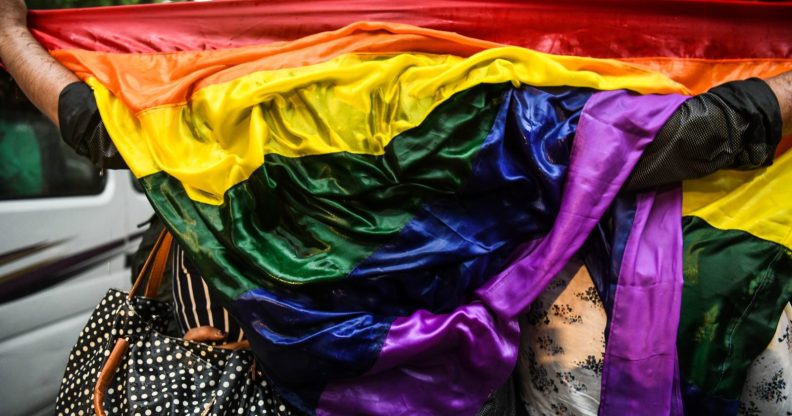
CHANDAN KHANNA/AFP/Getty
India recently decriminalised gay sex in a landmark ruling for LGBT rights, overturning a ban dating back more than 150 years.
The judges of the Supreme Court were unanimous in their decision to overturn the ban on consensual same-sex relations, a law dating back to colonial times, which was previously punishable by a sentence up to life in prison.
The only other country in South Asia where such relations are not criminalised is Nepal, whose Supreme Court in 2007 ordered the government to identify all the laws that discriminated against LGBT+ people – and to investigate legal recognition of same-sex relationships.
Although the decision is a historic move for India, many countries continue to outlaw gay sex.
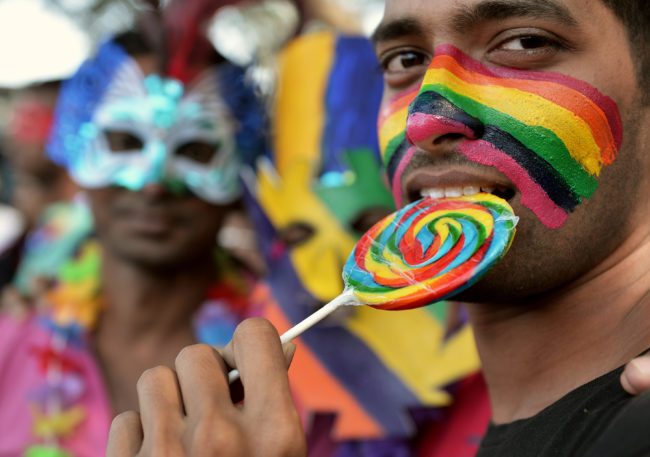
Gay sex was illegal in India from 1861 (Manjunath Kiran/AFP/Getty Images)
Where is it illegal to be gay?
According to the International Lesbian, Gay, Bisexual, Trans and Intersex Association (ILGA), there are 71 countries that criminalise same-sex relations and several others which have legal restrictions.
Russia and Lithuania do not have laws against homosexual acts, for example, but do have repressive laws against “propaganda” of homosexuality.
Lucas Ramon Mendos, senior research officer at the ILGA, told PinkNews provisions criminalising same-sex relations have been declared unconstitutional both in Trinidad and Tobago, but added “a final judgement still has to be made.”
“Things are also evolving in Costa Rica, where the Supreme Court ruled in August that laws banning marriage equality in the country are unconstitutional and must be changed within 18 months, and a similar decision has recently been made in Austria,” he adds.
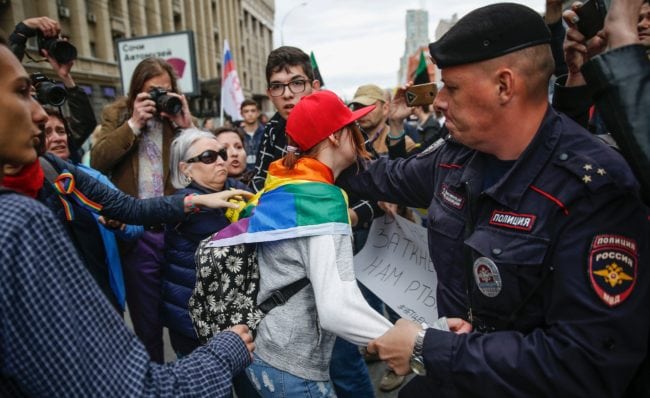
Police detain a LGBT activist during a protest in Moscow in 2017 (MAXIM ZMEYEV/AFP/Getty Images)
Gay sex remains a criminal offence in many countries across the Caribbean, including Antigua and Barbuda, Barbados, Dominica, Grenada, Guyana, Jamaica, St Kitts and Nevis, St Lucia and St Vincent and the Grenadines.
A significant proportion of African countries have anti-gay legislation: Algeria, Angola, Botswana, Burundi, Cameroon, Comoros, Egypt, Eritrea, Ethiopia, Gambia, Ghana, Guinea, Kenya, Liberia, Libya, Malawi, Mauritania, Mauritius, Morocco, Namibia, Nigeria, Senegal, Sierra Leone, Somalia, South Sudan, Sudan, Swaziland, Tanzania, Togo, Tunisia, Uganda, Zambia and Zimbabwe.
Mendos adds that the criminalisation of same-sex activity is currently being challenged in courts in Kenya and Botswana.
Bahrain, Israel, Iraq and Jordan are the only countries in the Middle East that do not outlaw homosexuality. Although Iraq technically decriminalised homosexuality in 2003, the breakdown of order and rise of the Islamic State led to the widespread persecution and punishment of LGBT people.
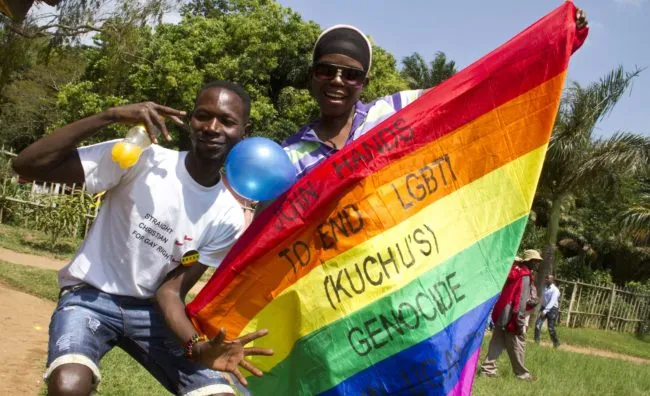
It is illegal to be gay in Uganda (Getty)
The following countries across Asia have anti-gay legislation: Afghanistan, Bangladesh, Bhutan, Brunei, Indonesia, Malaysia, Maldives, Myanmar, Pakistan, Singapore, Sri Lanka, Turkmenistan, United Arab Emirates and Uzbekistan.
Kiribati, Papua New Guinea, Samoa, Solomon Islands, Tonga and Tuvalu all have anti-gay legislation.
Some countries have laws that carry sentences up to life or execution for same-sex activity, including Afghanistan, Indonesia, Pakistan, Brunei and Myanmar.
Where is same-sex marriage legal?
Gay marriage is legal in more than two dozen countries around the world, including in Australia, after a historic bill was passed in the House of Representatives at the end of 2017. Finland, Malta and Germany also legalised same-sex marriage last year.
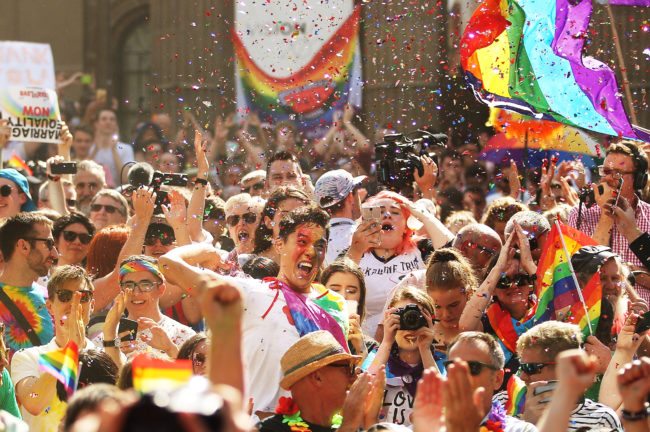
Australia legalised same-sex marriage in 2017 (Getty)
According to the Pew Research Center, the countries that allow gay marriage include: Argentina, Australia, Belgium, Brazil, Canada, Colombia, Denmark, England/Wales, Finland, France, Germany, Greenland, Iceland, Ireland, Luxembourg, Malta, the Netherlands, New Zealand, Norway, Portugal, Scotland, South Africa, Spain, the US, Uruguay and Sweden.
Although same-sex marriage is legal in England, Wales and Scotland, it is not yet recognised in Northern Ireland.
In June, the Czech government backed a bill to allow same-sex marriage, but Romania has moved closer to banning gay marriage. This week, Romanian senators voted in favour of a measure that could be used to change the country’s constitution so that marriage is defined as being between a man and a woman.

